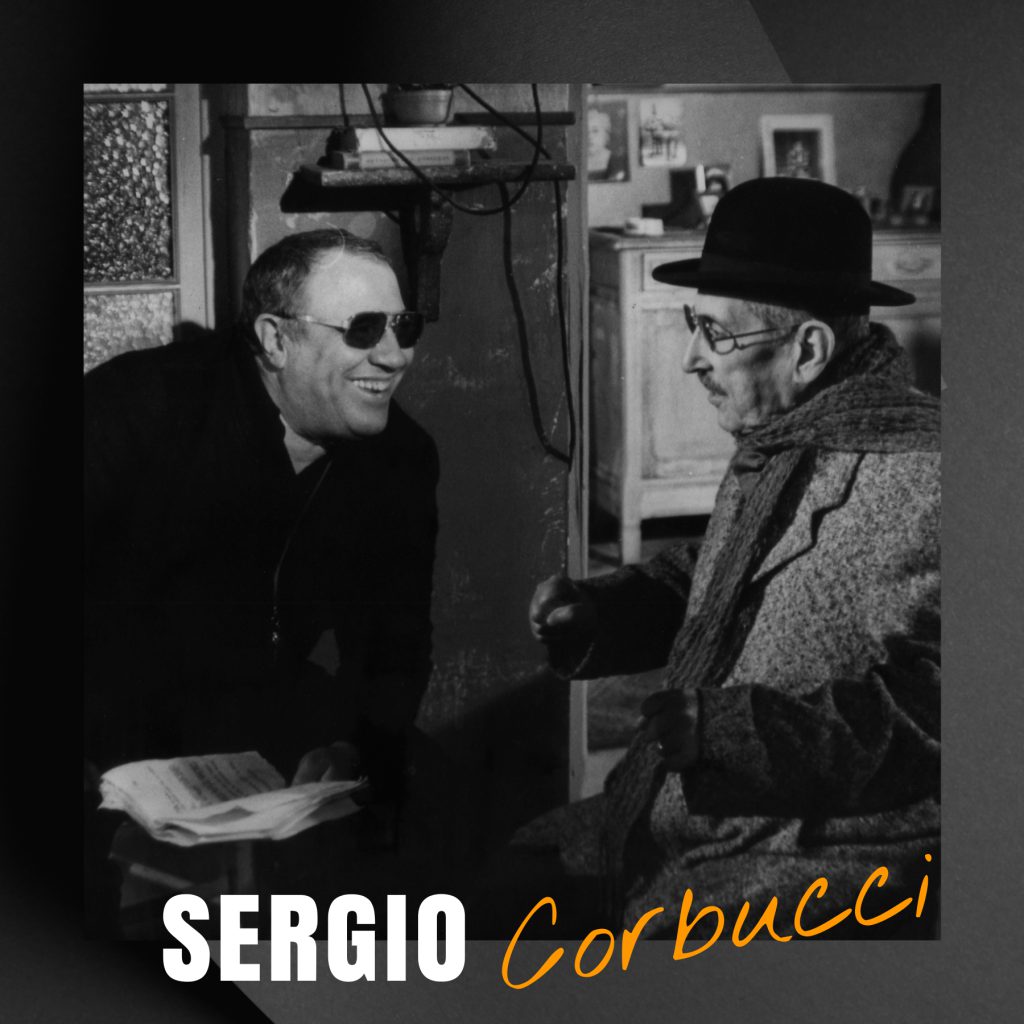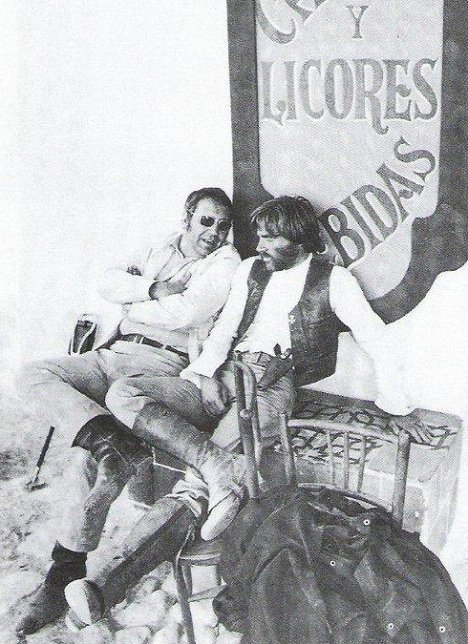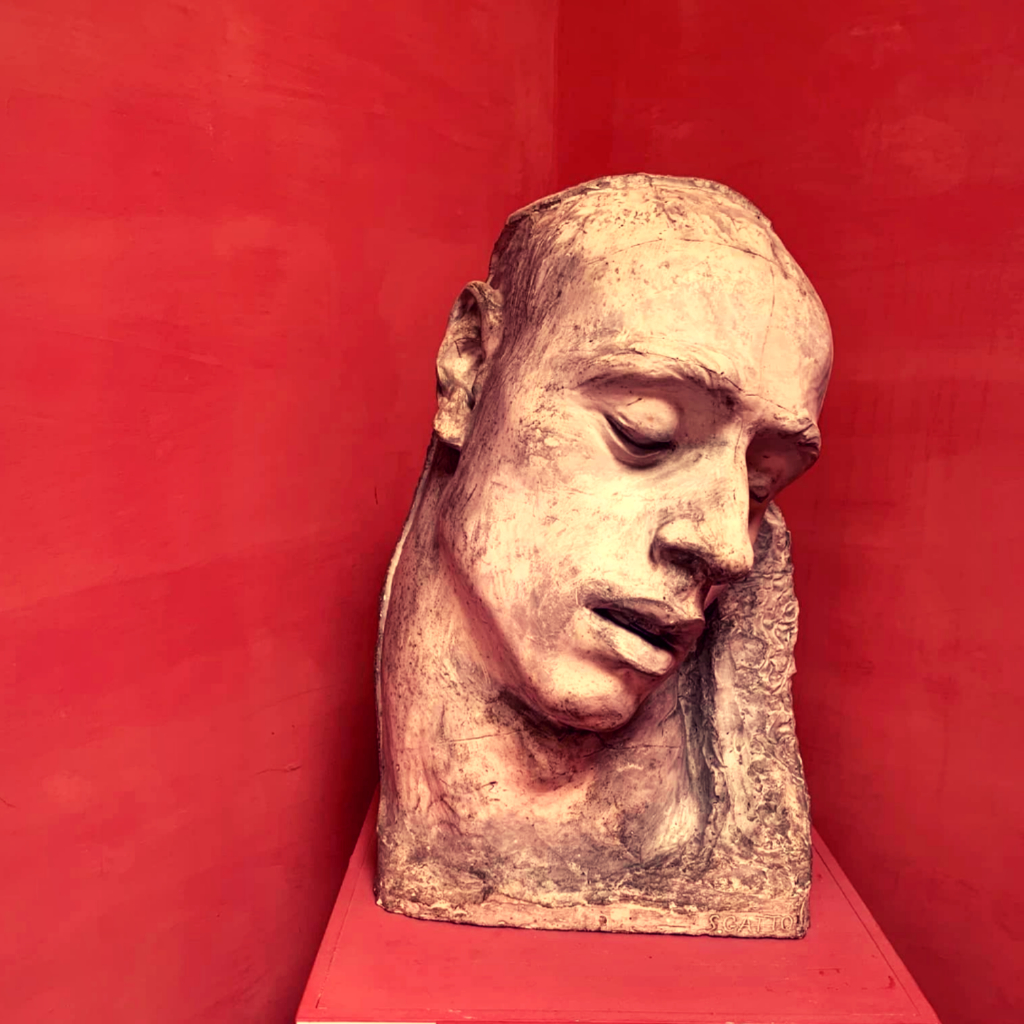
Quentin Tarantino has never hidden that he is a great fan of the director Sergio Corbucci, having taken from one of his sixties films the inspiration to make Django Unchained. “I was 24 years old and Corbucci gave me the chance to be known all over the world”. Among the protagonists of the film is also the actor symbol of Corbucci, Franco Nero.
I was very young and I was not aware of the themes that were hidden under the western genre. I found out later: his were political films in which he addressed the theme of fascism, the oppressed and the oppressors. As Tarantino says, it is also thanks to Corbucci that the hero’s character has been discovered as villain.
Franco Nero
Sergio Corbucci, great creator of successful films is a milestone in Italian cinema. Intelligent and brilliant he is considered with his friends Sergio Leone and Duccio Tessari a father of the Italian western, although in his career he crosses all genres.
“Django” is the paradigm. The main characteristic of his cinema is to play to overturn stereotypes by establishing new rules intended to be overcome by the next film. Italian western approach is very similar. Paradigmatic in this sense is his “Django”, a cruel, violent and bloody Western that extreme the character of the antihero typical of the Italian interpretation of the frontier story. From the first scenes, it is clear that Corbucci’s intention is to take to the extreme these anti-hero codes of the Italian western. In the final duel of his film “The Great Silence”, considered by fans of the genre, the best Italian western ever makes the good die and triumph the bad.
An extremely prolific director in his long career, he has directed more than 70 films, but he came to cinema almost by accident and without following the path of specific schools. He is not yet 20 years old when he enters into contact with the world of cinema as a journalist. The real cinematic experiences began in the early 1950s when he became the assistant of a famous movie maker of the time such as director Aldo Vergano. Various screenplays mainly of comedies precede his directorial debut in 1951 with the playwright “You Saved My Daughter” shot before but arrived in theaters after “Island Sinner” which in some biography is reported as the first film directed by Corbucci.
Totò’s acting was very spontaneous, improvisation played a large part. To give his best, Totò needed a partner with whom the agreement was immediate, and who often followed him from film to film. In I due marescialli, for example, Totò starred for the second time with Vittorio De Sica. At his side he almost exalted, showed the classic pleasure of the comedian who knows how to act understood and does it in an exceptional way.
Sergio Corbucci
Endowed with a good intuition and a remarkable eclecticism, the golden years of the Italian film industry in the most diverse genres live as protagonists. From mythological to “yellow”, from western to comedy gives great demonstrations of his ability to combine fantasy and intelligence budget not very high and audience satisfaction. The first real success of his career came in 1961 with ‘I due marescialli’, a comedy of misunderstandings set in the agitated days of 8th September 1943 and starring Totò and Vittorio De Sica.
Another case of companion at the height of Totò was that of Peppino De Filippo. I directed six films by Totò; three were also with Peppino De Filippo: Totò, Peppino e la dolce vita, Chi si ferma è perduto, Gli onorevoli. Totò and Peppino have appeared in a dozen films together, in a dozen years. Totò always needed an audience, to make the audience laugh according to what was the rule of the theater. One of the characteristics of the films I made with Totò and Peppino was the difficulty of the test. During the rehearsal the scene always became painful, and for the director very sad. One felt like a moron, and they said, Well, these are not going to make anyone laugh. The first time I saw them – and I was not a beginner – I had them rehearse a scene. I felt very uncomfortable directing two such monsters. They looked at me sly like two big cats, ironically considered the young director in front of them who tried to get something in comedy, and they tried completely mechanically. So much so that I had to turn to the Prince (Totò had to be called Prince to get along with him) to tickle a little more enthusiasm… But I was desperate. Then, when we really turned, I remember that it was a frightening scene, frightening because I saw the operator gasping from the laughter behind the car, I saw the electricians, the workers and the machinists laughing on the bridges. It was pure comedy, the comedy of art theater, unrepeatable.
Sergio Corbucci
He closed the formidable and almost exclusive epic of the Italian Western in the 70s and experimented new paths for comedy directing actors such as Giancarlo Giannini, Alberto Sordi, Ugo Tognazzi, couples Renato Pozzetto – Adriano Celentano, Vittorio Gassman – Paolo Villaggio and Bud Spencer – Terence Hill, Nino Manfredi, Marcello Mastroianni, Laura Antonelli, Enrico Montesano.

I was writing a film criticism book on Sergio Corbucci, the director who did the original Django. So, I was kind of getting immersed in his world. Towards the end of the Inglourious Basterds press tour I was in Japan. Spaghetti Westerns are really popular there, so I picked up a bunch of soundtracks and spent my day off listening to all these scores. And all of a sudden the opening scene just came to me.
Quentin Tarantino
The film is a parody of “The Longest Day” released in 1962, dedicated to the Normandy landings. The film refers to the First World War. An army of 88 actors rush to help Goffredo Lombardo to recover from the crisis and gives rise to a pleasant farce on the Great War. The story has nothing to do with the landing in Normandy and is told in flashbacks from the classrooms of a court martial where Francesco Coppola (Ciccio) and Franco Lo Grugno (Franco) are tried as traitors. The comedian defense lawyer, novice, rhetorical and soporific, who tries to get the inexperienced soldiers out of trouble, is a great Walter Chiari.
“The shortest day” was shot for the interior (even the front was rebuilt) in “The Titanus” studios and for the numerous exteriors in Manziana, in the province of Rome. It is an act of love of a large group of actors and collaborators to Goffredo Lombardo, in financial difficulties, to recover “The Titanus” from the crisis. Many performers lend their faces free of charge for a few sequences, to give prestige to the film and contribute to the rebirth of a great producer.
“The Titanus” is important in the history of Italian cinema, was born in Naples in 1904 by the will of Gustavo Lombardo, and as his first business produces the films of Leda Gys, diva of the silent, who marries the producer. Goffredo Lombardo was born from their union, it is he who gives impetus to “The Titanus” in the fifties, investing on melodrama and films by Raffaello Matarazzo, played by Amedeo Nazzari and Yvonne Sanson.
Goffredo Lombardo discovers Sophia Loren and launches pink neorealism, but also produces a lot of auteur cinema by Fellini, Rosi, Zurlini, Petri and Visconti. “The shortest day” is a film designed to save a major producer from certain failure. Success is assured.
The high critics are not very convinced, as always when it comes to a Franco & Ciccio movie, and the stroncature are flocking. Paolo Mereghetti concedes a star and a half: “The military theme is just a pretext to assemble a series of more or less successful gags and exhibit a host of illustrious extras often used for a few seconds”.
Pino Farinotti is more generous, grants two stars and states that “the film tells in a humorous way Italy in the years of the First World War”. Morando Morandini proves that he has not seen the film, because he speaks of “parody of The Longest Day”, even if he is generous and grants two stars. Look at it without prejudice. Fun is guaranteed.
Totò’s participation in the film was due to the fact that the actor was filming “The Monk of Monza” in a nearby studio: already dressed as a friar, it was thought to put on his head a hat with a feather and turn him into a monk bersagliere.



